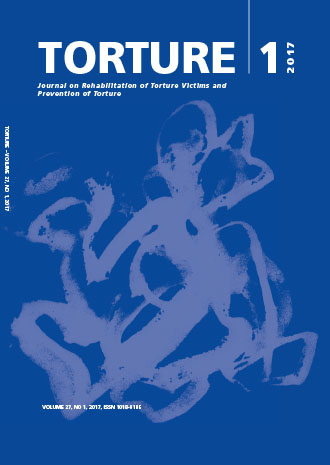Preventing torture for people deprived of freedom: The Atlantic Hope and Black Swan Prison Model
DOI:
https://doi.org/10.7146/torture.v27i1.26535Keywords:
Simulation, prisoners, detainees, sustainability, protectionAbstract
International law and minimum standards provide certain protection for detainees and prisoners of war (POW) against torture and ill-treatment. Places of detention and parties to conflicts are often monitored to ensure that they adhere to the required standards through, for example, visits to individual detainees and the assessment of facilities. However, monitoring between the point of arrest and eventual remand in prisons is largely inadequate. This paper explains an emerging model to enhance protection of prisoners through readiness training for prospective humanitarian personnel. The Atlantic Hope simulation exercise on monitoring detainees and visits to the mock Black Swan prison represents a teaching model to enhance sustainable protection of detainees and POW during incarceration. The simulation entails comprehensive monitoring, assessment, visits and provision of services to prisoners from the point of arrest, during the transition to places of custody, and imprisonment. These enhance protection of detainees to avoid deaths in custody, disappearance and torture throughout the chain of imprisonment.Downloads
Published
2017-10-10
How to Cite
Ogbozor, E. N., Schoeny, M. L., & Baer, A. E. (2017). Preventing torture for people deprived of freedom: The Atlantic Hope and Black Swan Prison Model. Torture Journal, 27(1). https://doi.org/10.7146/torture.v27i1.26535
Issue
Section
Research and Scientific articles
License
We accept that some authors (e.g. government employees in some countries) are unable to transfer copyright. The Creative Commons Licence Attribution-NonCommercial-NoDerivatives 4.0 International (CC BY-NC-ND 4.0) covers both the Torture Journal and the IRCT web site. The publisher will not put any limitation on the personal freedom of the author to use material contained in the paper in other works which may be published, provided that acknowledgement is made to the original place of publication.


